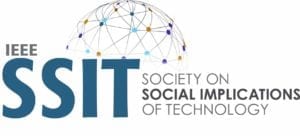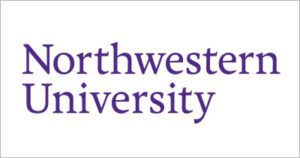

IMPORTANT DATES
Deadline Extended – February 10, 2025: Papers (short length and regular length) and Poster Abstracts due
March 31, 2025: Acceptance/rejection notice of Papers and Posters
May 12, 2025: Final “Camera-Ready” Papers and Poster Abstracts due
ETHICS-2025 Call for Papers: Emerging Technologies, Ethics, and Social Justice
6-8 June, 2025
Northwestern University, Evanston, Illinois, USA
The IEEE International Symposium on Ethics in Engineering, Science, and Technology (ETHICS) is a conference series sponsored by the IEEE Society on Social Implications of Technology (SSIT). Originally launched in 2014, ETHICS-2025 draws together the global, multicultural, interdisciplinary community of technology and ethics scholars and practitioners from industry, academia, government, and civil society. ETHICS-2025 is hosted by the Department of Black Studies at Northwestern University, a leading private research university with world class programs in engineering, science, humanities, social sciences, management, education, law, and medicine and a strong interdisciplinary culture including engagements in the ethics and policy realms.
The theme for ETHICS-2025 is “Emerging Technologies, Ethics, and Social Justice.” Emerging technologies, in such areas as artificial intelligence, ubiquitous connectivity, autonomous systems, robotics, self-driving transportation, clean renewable energy, genomics, digital twins, space technology, and healthcare technology, hold great promise for the future while posing significant social and ethical challenges. Ethical issues include data privacy and security, human identity, consumer safety, and moral agency/responsibility. In addition, emerging technologies have significant implications for social justice including the distribution of wealth, opportunities, and privileges; equitable access to technology; algorithmic bias; job displacement; environmental justice; and diversity, equity, and inclusion. ETHICS-2025 will explore these issues and potential responses to them from a variety of perspectives drawn from engineering, science, humanities, and social sciences and diverse stakeholders from research, industry, government, and public interest groups.
ETHICS-2025 Conference Topics include but are not limited to:
- Social, Ethical, and Environmental Implications of Emerging Technologies
- Automation, AI Ethics, and Social Justice
- Implications of Emerging Technologies for Democratic Social Systems, Governance, and Policy Development
- Social Innovation and the Digital Transformation
- Challenges of Emerging Technologies for Engineering Ethics Education
- Future of Work
- Emerging Technologies and UN Sustainable Development Goals
- Ethics, Regulation, and Emerging Technologies
- Perspectives on Emerging Technologies from Humanities and Social Sciences
- Climate Change and Emerging Technologies
- Teaching AI Ethics
- The Future of Technological Innovation and Social Responsibility
Submissions
PLEASE NOTE THAT ETHICS-2025 IS A FACE-TO-FACE CONFERENCE.
The ETHICS-2025 Program Committee welcomes original work not previously or simultaneously submitted to another journal or conference. Individual submissions may include abstracts (to be presented as posters), short papers (3-5 pages), and regular papers (6-10 pages). We also welcome proposals for workshops and pre-organized panel sessions. All accepted papers and abstracts will be published in the conference proceedings in IEEE Xplore; selected authors may be invited to expand their papers for publication in a special section of the journal IEEE Transactions on Technology and Society. Awards will be presented for “Best Paper” and “Best Poster.” Papers, poster abstracts, workshop proposals, and panel proposals must be submitted through EasyChair by the deadlines indicated below.
Deadlines
January 13, 2025: Panel Session and Tutorial/Workshop Proposals due
Extended Deadline – February 10, 2025: Papers (short length and regular length) and Poster Abstracts due
March 31, 2025: Acceptance/rejection notice of Papers and Posters
May 12, 2025: Final “Camera-Ready” Papers and Poster Abstracts due
Detailed Submission Guidelines
PLEASE NOTE THAT ETHICS-2025 IS A FACE-TO-FACE CONFERENCE.
Papers, poster abstracts, workshop/tutorial proposals, and panel proposals must be submitted in PDF format through the ETHICS-2025 EasyChair portal (here). Please note: If you have not used EasyChair before, you will need to create an account with EasyChair before submitting your abstract, paper or proposal. To create an account, click on the “Create an account” link on the conference login page and then follow instructions. You’ll then receive further instructions by email.
Panel Session, Workshop, and Tutorial Proposals
To propose a panel session, workshop, or tutorial, submit a PDF of no more than 2 pages that outlines a clear topic, set of objectives, and format (including anticipated duration of 60 or 90 minutes), and explain how the session aligns with the conference theme or subthemes. Provide a list of confirmed presenters/moderators/facilitators and explain your intended plan for securing any proposed additional presenters.
- Panel Sessions address broad topics of relevance to the conference. They typically last 90 minutes and involve either (1) a combination of presentations, which can take a variety of formats, such as traditional full-papers, shorter-form position statements and responses, round-table discussions, etc., or (2) audience dialogue, which could include a Q&A discussion. Organizers are responsible for confirming a moderator and at least three panelists by the conference early registration deadline, and all moderators/panelists must register for the conference.
- Workshops are interactive sessions that focus on a narrowly defined topic. They typically last 90 minutes and involve a combination of presentations, dialogue between facilitators and participants, and activities that allow participants to try out or implement new ideas. Workshop facilitators must register for the conference by the early registration deadline.
- Tutorials are didactic sessions that deliver a focused lesson on a topic relevant to the conference theme and they typically last 60 to 90 minutes.. A facilitator/teacher typically presents material to audience members who are interested in the topic but not yet subject-matter experts. Tutorial facilitators must register for the conference by the early registration deadline.
Regular Papers
These contributions are between 6-10 pages including references and will receive full peer-review for consideration for presentation in a paper session and publication in the ETHICS-2025 Conference Proceedings (published through IEEE Xplore). Full-length papers are expected to present original, cutting-edge research; they should contain detailed and explicit methodology and/or theoretical underpinnings and a comprehensive literature review, and they must clearly explain the work’s novelty and contribution to its respective field. Full-length papers must be formatted in accordance with the IEEE conference template. If a paper is accepted, at least one author must register for the conference; if more than one author presents a paper, all of the presenters must be registered. Authors of selected regular papers may be invited to revise and expand their work for publication in a special issue of IEEE Transactions on Technology and Society.
Short Papers
These contributions are between 3-5 pages including references and will receive full peer-review for consideration for presentation in a paper session and publication in the ETHICS-2025 Conference Proceedings (published through IEEE Xplore). Short papers may present preliminary findings from work in progress, industry/practitioner/creative perspectives on issues relevant to the conference theme or subtheme, or relevant student research projects. They should present and discuss a clear and focused central idea, incorporate discussion of relevant research/contexts, and provide references as appropriate. Short papers must be formatted in accordance with the IEEE conference template. If a paper is accepted, at least one author must register for the conference; if more than one author presents a paper, all of the presenters must be registered.
Abstracts
These contributions should be no longer than one page and will receive desk review by the Program Co-Chairs for consideration for presentation in a poster session and publication of the abstract in the ETHICS-2025 Conference Proceedings (published through IEEE Xplore). Abstracts should provide a summary outlining the proposed poster presentation’s topic, purpose, argument, and alignment with the conference theme or subtheme, and provide references as appropriate. Abstracts must be formatted in accordance with theIEEE conference template. If an abstract is accepted, at least one author must register for the conference; if more than one author presents a poster, all of the presenters must be registered.
Please note that multiple submissions of papers and poster abstracts by the same author will normally be limited to no more than three items (e.g., two papers, one poster abstract). If you would like to submit more papers or abstracts, please provide a rationale and request permission from the Program Co-chairs prior to submission
Paper Evaluation and Publication
All ETHICS-2025 submissions will be evaluated according to:
- Relevance (consider ethical issues, address conference theme or subtheme)
- Quality (e.g., well argued, methodological basis, evidence-based, grounded in theory)
- Significance/Originality
- Balance, Structure, and Clarity
- Importance of Findings and Conclusions (for work in progress short papers, findings may be preliminary)
All accepted and presented regular papers, short papers, and poster abstracts will be published in the ETHICS-2025 Conference Proceedings published through IEEE Xplore. If this is your first time publishing with IEEE, you might appreciate visiting the IEEE Author Center. Additional author/presenter tips are available here.
Best Paper and Best Poster Awards
The conference Best Paper Award will be determined by a subcommittee of conference organizers appointed by the Program Co-Chairs. Nominees for Best Paper will be selected by the Program Co-Chairs based upon the assessments of peer reviewers. The Best Poster Award will be determined by a subcommittee of conference organizers appointed by the Program Co-Chairs.
More Information
ETHICS-2025 Program Co-Chairs:
Joe Herkert (jherkert@ncsu.edu)
Qin Zhu (qinzhu@vt.edu)

